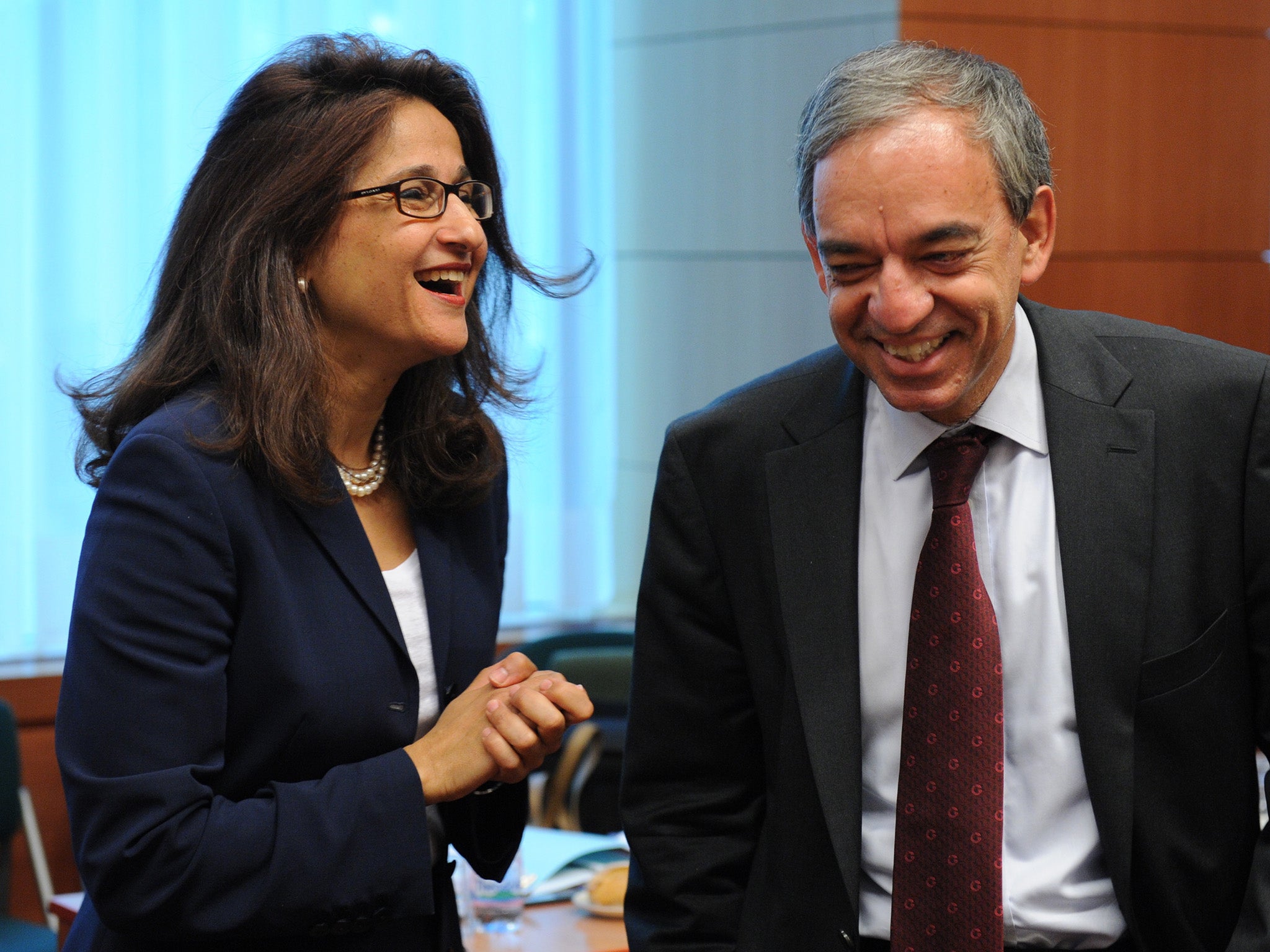Nemat Shafik: Deputy Governor of Bank of England becomes highest new UK entry in Forbes Magazine's Power Women’s List
Shafik is among just three British entries into this year's list

She is more powerful than Theresa May, J.K. Rowling and Kate Middleton. Nemat Shafik, the low-profile Deputy Governor of the Bank of England, is the highest new British entry in Forbes magazine’s annual Power Women’s List.
Described as “candid, loyal and a superb leader” by IMF managing director Christine Lagarde, the Egypt-born Shafik, or Minouche as she is known, features at number 66 on the list, which is topped by Angela Merkel, the German Chancellor and includes just three British entries.
A high-flying former civil servant, Shafik, 52, who holds degrees from Oxford, the London School of Economics and Massachusetts-Amherst was appointed Deputy Governor last year.
Previously the youngest ever vice president of the World Bank, at the age of 36, where she was responsible for $50bn (£30bn) of investments, Shafik, whose family left Egypt for the US when she was four, joined the Department for International Development as Permanent Secretary in 2008.
She then became the IMF's deputy managing director for Europe and the Middle East in 2011, where she was also responsible for the Fund's $1bn administrative budget, and stepped in for former IMF boss Dominique Strauss Kahn at a key eurozone meeting, after he was arrested on sexual assault charges.
Mark Carney, the Bank of England governor, poached her after promising to improve the representation of women at the top of the organisation.
The author of a number of economic tomes, Shafik, who represents the Bank in discussions with international bodies, survived a grilling from MPs who questioned her credentials after her appointment.
Andrew Tyrie, chairman of the Treasury Select committee, asked if she had the “skills needed” to direct monetary policy or whether she was “going to learn on the job”.
The mother of two said she had served on the finance committee of the World Bank and managed the $10bn pension fund scheme at the IMF.
The other UK entries are the Queen (41) and Katharine Viner, the new Editor-in-Chief of The Guardian, who joins the Top 100 at number 80.
Merkel tops the list for the fifth consecutive year and the tenth occasion in total. She is followed by US presidential candidate Hillary Clinton and Melinda Gates at No 3.
Taylor Swift is a new entry at 64. The hit singer flexed her music industry muscles when she took her catalogue off the Spotify streaming service, arguing that the platform was devaluing music by allowing fans to listen to it for free.
The highest new entries are Federica Mogherini (36), the EU’s new High Representative for Foreign Affairs and Security Policy and Ewa Kopacz (40), the Prime Minister of Poland.
Lady Gaga and supermodel Gisele Bündchen fall out of the Top 100, which features eight heads of state and one monarch. The Power Women control nearly $1 trillion in annual revenues. There are 15 billionaires with a total net worth in excess of $73.3 billion. The 100 women on the list have a combined social media footprint that includes 474 million Twitter and YouTube followers.
Forbes Power Women
Hillary Rodham Clinton – (2)
Sheryl Sandberg – (8)
Queen Elizabeth II (41)
“Purring” after Scotland remained part of the UK, the constitutional monarch, 89, was prepared to use her powers to ensure stable government if the election result required it.
Nemat Shafik (66) New Entry
Katharine Viner (80) New Entry
Lady Gaga - Drop off
Join our commenting forum
Join thought-provoking conversations, follow other Independent readers and see their replies
Comments